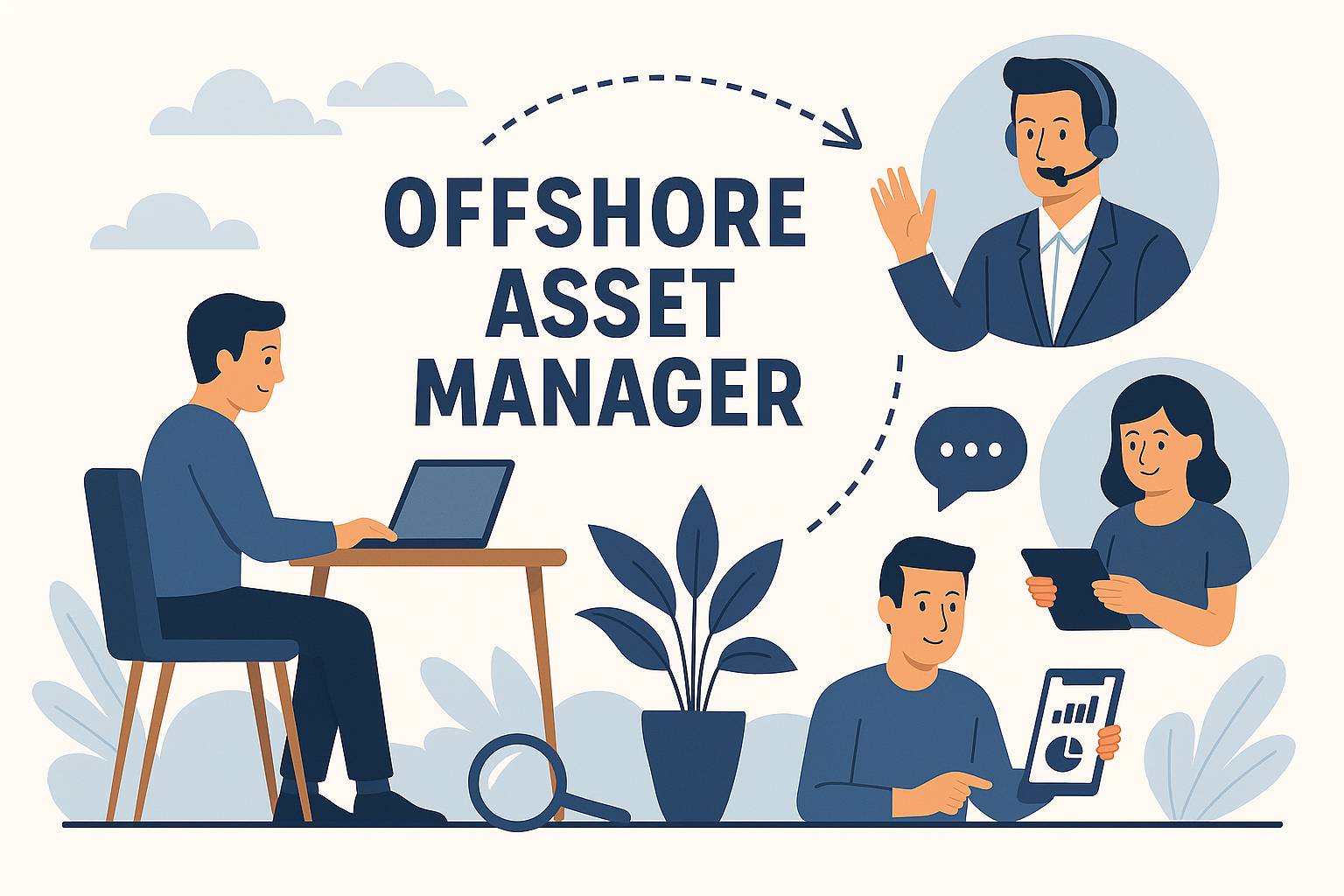
In today’s highly competitive and cost-sensitive private equity environment, firms are looking for every possible edge. One of the most impactful strategies they’re turning to is offshoring, not just for admin or back-office support, but for high-value, strategic roles like Asset Management.
The Role of Asset Management in Private Equity
Asset managers are the guardians of portfolio performance. They monitor operational metrics, track financials, drive value-creation initiatives, and maintain relationships with property managers, operators, and vendors. It's a critical function, yet often resource-intensive and expensive to staff domestically.
That’s where global talent comes in.
Why Offshore Asset Managers Make Strategic Sense
1. Access to Experienced Global Talent
Offshore Asset Managers are no longer just spreadsheet operators. Many come with hands-on experience managing property performance, reviewing leases, conducting rent roll analysis, tracking net operating income (NOI), and coordinating with third-party property managers. Their work directly supports better portfolio performance and investor confidence.
2. Direct Support for Deal and Portfolio Teams
Offshore Asset Managers can support U.S. teams with high-value tasks like:
- Tracking CapEx projects across assets
- Running stress tests and scenario modeling
- Monitoring DSCR and debt covenants
- Preparing lender/investor performance reports
- Assisting in quarterly asset reviews and valuations
They become an extension of your U.S. team, not a replacement, offloading routine but critical work so your core staff can focus on acquisitions, fundraising, and strategy.
3. Strong STEM and Analytics Talent Pools in Offshore Markets
Countries like India, Nepal, and the Philippines are producing a surplus of STEM graduates, many of whom pivot into analytics-heavy roles across finance, real estate, and consulting. This has created a deep talent pool of professionals skilled in:
- Real estate modeling
- Variance analysis and budgeting
- Business intelligence tools (Power BI, Tableau)
- Excel-based forecasting & IRR/NPV analysis
Compared to the U.S., where demand for analytical roles often outpaces supply, offshore markets are overflowing with data-savvy professionals hungry for global opportunities.
4. 24/7 Operations & Faster Trunaround
A global team means extended working hours. Offshore Asset Managers can prep reports, track KPIs, and update dashboards before the U.S. team logs in, speeding up decision-making and freeing up domestic teams to focus on strategy.
5. Scalable Growth
As Private Equity firms scale their portfolio, adding domestic headcount each time isn't always feasible. Offshore teams allow firms to scale support dynamically without bloating overhead.
It Doesn’t Stop at Asset Management
Beyond Asset Managers, U.S. private equity firms are also hiring offshore professionals in roles such as:
- Acquisition Analysts – Deal underwriting, market comps, investment memos.
- Investor Relations Coordinators – CRM management, reporting, investor updates.
- Property Accounting and Finance – Bookkeeping, cash flow tracking, reconciliations.
- Marketing & Design – Pitch decks, offering memorandums, brand collateral.
- Operations Support – Lease abstraction, vendor follow-ups, software administration.
These roles don’t replace your core U.S. team—they augment it, allowing your in-house staff to focus on big-picture growth and capital strategy.
Real-World Results: Why More Firms Are Making the Move
Private equity is a high-stakes business. Efficiency, accuracy, and insight matter. That’s why more firms are discovering that building a blended team of onshore and offshore talent gives them a true competitive edge, not just in cost, but in execution.
With the right partner, onboarding an offshore Asset Manager, or an entire support team, can be seamless and secure. From workflow alignment to confidentiality protocols, offshore hiring has matured.
Final Thoughts
Offshoring isn’t about cutting corners anymore, it’s about being smarter with your resources. For U.S. private equity firms, hiring offshore talent for Asset Management and other critical functions is no longer a novel idea, it’s a best practice.
If you're looking to build a more agile, cost-efficient, and effective investment team, offshore hiring might just be your smartest next move.








